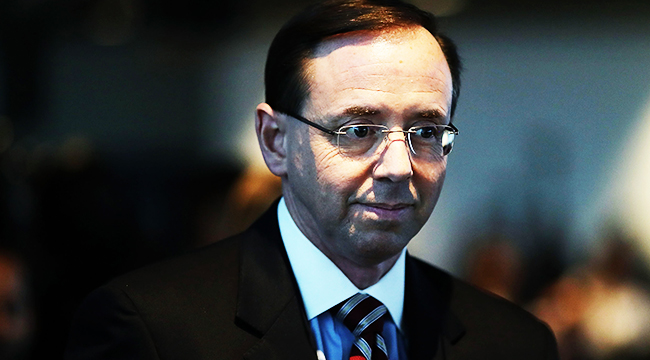
The Department of Justice’s Deputy Attorney General, Rod Rosenstein, has announced a sweeping indictment of 13 Russian citizens, and several corporate entities they’re connected to, as part of an attempt to interfere in U.S. elections, at least as far back as 2014 and including the 2016 presidential race. The accusations against the defendants include the following: (1) They operated fake Facebook pages; (2) They committed identity theft for the purposes of electoral interference; (3) They entered the U.S. on false pretenses; (4) They contacted the Trump campaign without revealing their connections to a hostile power; (5) They tried to stage rallies, discourage people from voting, and laundered money through U.S. banks.
All of this was done under the auspices of the blandly named “Internet Research Agency.” And this isn’t the first time the Internet Research Agency has been embroiled in international affairs. Here’s what you need to know about Russia’s social media propaganda operation:
- The Internet Research Agency was first discovered in 2013: Located in St. Petersburg’s Olgino district, the Internet Research Agency was first uncovered by Russian journalists in 2013. It’s not Russia’s only trolling and propaganda operation on the internet, but it became so synonymous with Russian propaganda operations that even those located elsewhere are called “trolls from Olgino.”
- The company was founded in 2013, but it’s likely the operations date from well before that: Russia has been interested in, and afraid of, the power of social media for years. Blogging platform LiveJournal was bought out by Russian interests, in part to find and shut down citizen journalists tracking corruption and government misbehavior. In 2015, CNN reported the group had over 1000 employees engaged in operations around the world.
- Russia has been attacking other countries for years: For example, Finnish journalist Jessikka Aro, who reported on Russian trolling operations, took the full brunt of the group’s wrath when she revealed their attempted interference in Finland’s elections.
- The indictments are a laundry list of the troll group’s standard operating procedure: The indictment, which states the Russians were actively supporting the Trump campaign, includes everything from attempts to stage rallies using false identities to buying ads on Facebook to inflame social divisions. The group both concocted identities and stole identities from Americans in order to contact political groups, and started Facebook pages to troll voters. They also bizarrely attempted to hire an actor portraying Hillary Clinton in a cage and hired an American to stand in front of the White House with a sign to wish their owner, Evgeny Prigozhin, a happy birthday.
- Substantial financial crimes are alleged: The indicted Russians both opened accounts under false names and stole identities to transfer funds through PayPal, traditional banking channels, and by buying and selling cryptocurrency. They even sold promo spots on their Facebook pages to unwitting Americans.
These indictments leave the Trump administration in an awkward position. Nobody in the administration is charged with knowingly engaging in wrongdoing, but the indictment makes it very clear that all of these operations were done with the goal of electing Trump to the White House. It’s also clear that a range of Americans will need to look closely at their statements and actions to see if they fell for Russian propaganda. And, most glaringly, it leaves egg on the Trump administration’s face over its refusal to enforce stricter Russian sanctions.
As for the Russians themselves, it’s not clear if they will ever see the inside of an American courtroom. But the message is very clear: Any time spent in the shadows is truly done.
(Via Department of Justice)
